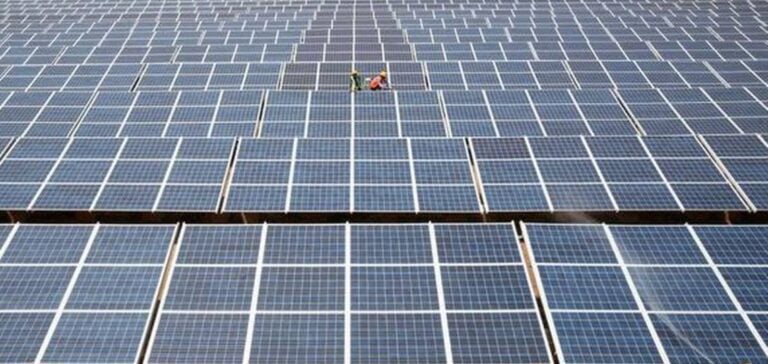The CERN (European Organization for Nuclear Research), renowned for its work in fundamental physics, has taken a significant step toward sustainable energy practices. The organization has partnered with Voltalia, an international renewable energy actor, in an innovative agreement to supply electricity from two solar farms located in southern France.
The terms of the partnership, formalized through Corporate Power Purchase Agreements (Corporate PPA), span a 15-year period. The combined capacity of the two solar plants under development reaches 26.8 megawatts. This output will meet the equivalent energy needs of 19,400 inhabitants while avoiding 8,775 tons of carbon dioxide emissions annually. These figures underscore the environmental benefits of a transition to renewable energy in energy-intensive sectors like scientific research.
A Project Aligned with CERN’s Goals
Located on the French-Swiss border near Geneva, CERN operates technological infrastructures such as particle accelerators that demand massive amounts of electricity. This significant consumption has driven the organization to adopt responsible energy practices. Certified ISO 50001 since February 2023, CERN implements ambitious optimization strategies, including waste energy recovery and continuous improvement in energy efficiency.
The partnership with Voltalia is part of this comprehensive strategy. By ensuring solar energy supplies for its installations, CERN strengthens its commitment to reducing its carbon footprint while securing competitive and stable electricity resources.
Voltalia: A Key Player in Energy Transition
For Voltalia, this agreement showcases its ability to support leading organizations in their energy transition. The two solar farms involved in this project will directly contribute to CERN’s goals while bolstering Voltalia’s presence in the French renewable energy market.
Sébastien Clerc, CEO of Voltalia, emphasized the symbolic and practical significance of this collaboration. “Our photovoltaic projects will support CERN’s work, particularly on major scientific endeavors such as fundamental particle studies. This partnership is a concrete illustration of the contribution of renewable energies to a sustainable future.”
An Inspiring Model for the Future
The partnership between CERN and Voltalia represents an exemplary collaboration between science and renewable energy. It highlights the ability of scientific organizations to actively commit to responsible practices without compromising their operational demands.
With this project, CERN confirms its pioneering role not only in scientific research but also in adopting sustainable energy practices. This type of partnership could inspire other institutions to follow a similar path, paving the way for an energy-responsible future.






















